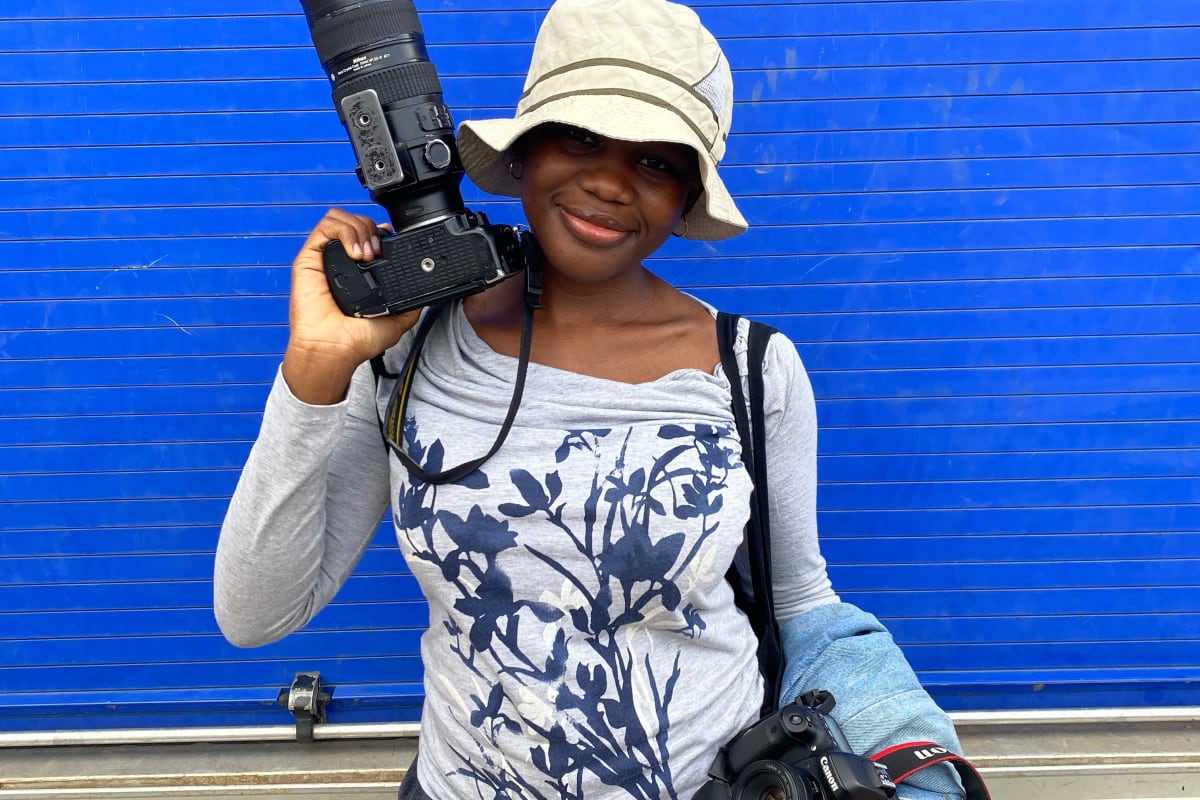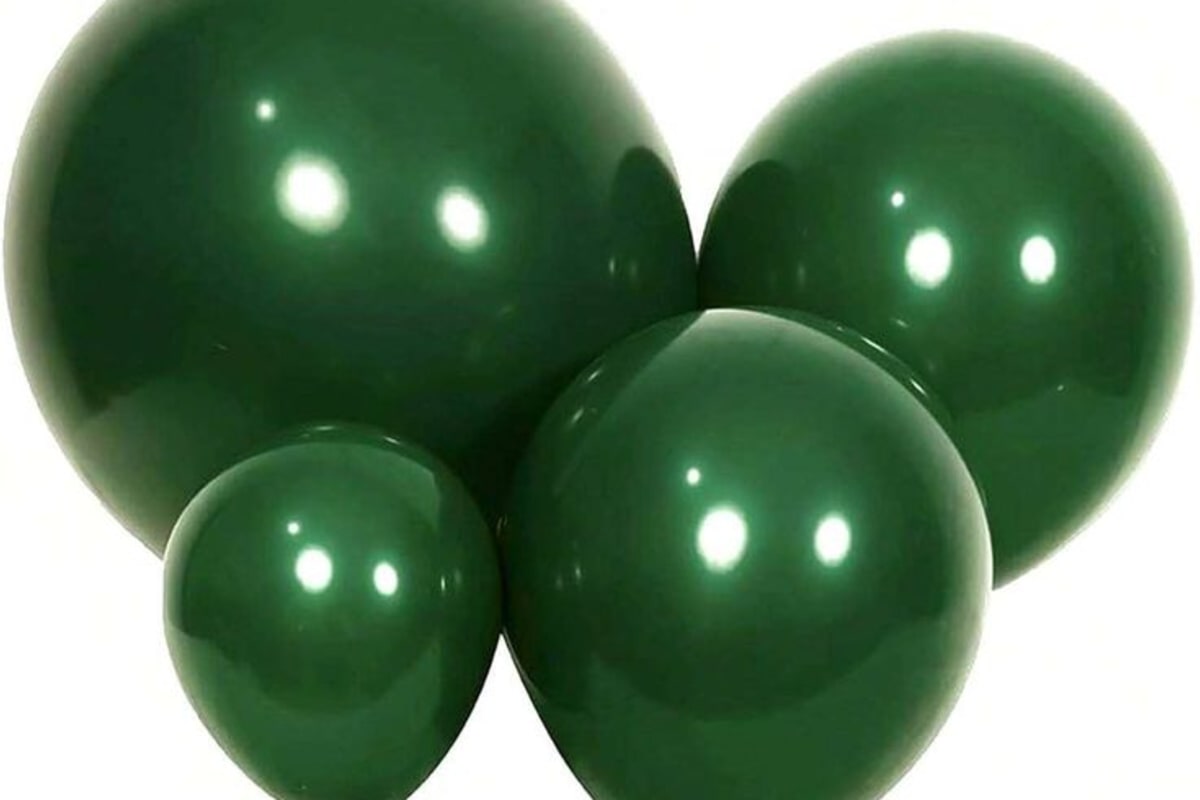Coming Into Yourself
What happens when we stop coming out and start coming in? A Pride conversation about self-acceptance, the tyranny of labels and why your internal validation is the only permission slip you need.
Publications
What happens when we stop coming out and start coming in? A Pride conversation about self-acceptance, the tyranny of labels and why your internal validation is the only permission slip you need.
Author
Adedigba Damilola
Date
Read
12 mins
Essay
What happens when we stop coming out and start coming in? A Pride conversation about self-acceptance, the tyranny of labels and why your internal validation is the only permission slip you need.
Pride is messy this year. Actually, Pride is messy every year, but 2025 hit different. Between the biphobia that crashed our feeds like an unwelcome relative at dinner and the endless discourse about who gets to be what kind of queer, it feels like we are spending more energy policing each other than celebrating ourselves.
But here's the thing about Pride that gets lost in the rainbow capitalism and cunty outfits (though we love both): at its core, Pride isn't a performance. It's not about convincing anyone of anything. Pride is the radical act of existing authentically in a world that would prefer you didn't.
So what does it actually mean to come into yourself rather than come out to everyone else? What happens when self-acceptance becomes more important than external validation? And why are we still fighting about labels when the whole point was supposed to be freedom?
This Pride, we sat down with members of our community to talk about the messy, beautiful reality of just being queer in 2025. No boxes, no scripts, no pressure to be the "right" kind of anything.
"I've always felt so out of place" On realizing difference without having words for it
"I don't think there was a particularly defining moment for me," shares one of our contributors, whose experience of queerness began with what 'wasn't' happening rather than what was. "I've always felt so out of place, especially with romantic relationships. My asexuality and agenderness was what I had to deal with first - why I didn't want to kiss the boyfriend I had at the time even though I liked him."
This feeling of foreignness - particularly around gender - resonates through so many queer experiences. "I didn't understand womanhood, it felt like I was performing and I didn't like how it felt. There's also the fact that I don't feel like a real person half the time, so presentation is a costume for me, a way to take form."
The beauty in this honesty? There's no dramatic coming-out story, no tearful family dinner. Just the quiet recognition that the scripts everyone else seemed to be following didn't fit. And that's enough.
"I leaned into it without any doubt" When attraction becomes clarity
For others, realization came through connection. "I don't want to sound cliche but it started with a girl," another contributor tells us. "I had always admired women but it never came to my subconscious about being attracted to women, until her."
What strikes us about this story isn't the "girl" part - it's the certainty. "I found myself leaning into it without any doubt, internal questioning or second thoughts, as if this is who I'd always been."
There's something powerful about that phrase: 'as if this is who I'd always been'. Not becoming something new, but recognizing something that was already there. The revelation isn't about change - it's about acknowledgment.
The tyranny of "the perfect queer" Performing queerness, even in our own spaces
But let's talk about what happened this Pride that left many of us exhausted before June even ended. The biphobia that swept through our feeds was hurtful, a stark reminder that even within our own spaces, some of us are still fighting to simply exist without explanation.
"Sometimes I feel like I'm overly extolling women in an effort to deny the half of me attracted to men," one contributor admits. "Thinking the fact that I'm bisexual does not make me 'fully' queer, so I attempt to overcompensate."
This is the exhausting reality of 2025 queerness: we've gone from "don't be gay" to "be gay, but only in these specific ways." The community that fought for freedom from boxes sometimes creates new ones.
"It's kind of sad that we fought so hard to be free, to be authentic and to be ourselves just for us to further try to confine ourselves," another voice adds. "We're starting to become what we hate."
The bi-erasure is real and relentless. "If you're in a relationship with somebody who identifies as the same gender, you're gay. If you're in a relationship with somebody who identifies as the opposite gender, you're straight. They make it like changing a shirt."
Letting go of the labels When self-acceptance means embracing the undefined
Here's where the conversation gets interesting. What if the answer isn't better labels, but fewer of them?
"Self-acceptance to me meant letting go," one contributor shares. "I was always trying to figure out what label I came under, trying to determine my gender, sexual and romantic identity and getting confused by the changes. I decided to let go and focus more on the experience instead of trying to pinpoint and label every feeling I had."
This shift from categorization to experience feels revolutionary in a moment when we're drowning in microlabels and discourse about who gets to use which terms. What if queerness isn't about finding the perfect box, but about giving yourself permission to exist outside of them entirely?
"I do say I'm pansexual and some people are like just say you're bisexual," another contributor notes. "Labels are just such a restriction. We can be whatever we want to be. If I'm pansexual or bisexual, it doesn't take away from the fact that I am what I am."
The joy of just existing What happens when you stop explaining yourself
So what does it actually feel like to just exist as a queer person without the constant need to justify or explain?
"It means being fully content with yourself," one voice tells us. "Loving your life as you always have, just with the realization and acceptance that you're queer."
Another adds: "What does it mean to just exist? Well, somebody that identifies as queer doesn't need to necessarily say 'what' they are. If they are queer, they are queer. You don't need to know who they're fucking. Let's not be weird."
The relief in these words is palpable. After years of coming out, explaining, educating, and performing, there's something radical about simply being.
Finding joy in the midst of chaos What brings us happiness when no one's looking
When we asked what part of queerness brings joy, the answers were immediate and glowing:
"Every single part of my queerness brings me joy - every single part of my queerness is liberation! The privilege of being able to love and be loved by all sorts of beautiful humans, that is such abundance."
"The community. Queer folks really hacked community, and it's not just out of survival but out of love."
This is what gets lost in the discourse and the drama: the actual joy. The community that shows up. The abundance of love. The freedom to be all of yourself.
Staying centered when the world has opinions Creating bubbles of authenticity
How do you stay true to yourself when everyone has an opinion about who you should be?
"I just tune it all out," one contributor shares. "I try to find queer joy, try to surround myself with people like me who are living their truth, who are not letting that outside noise in."
Another: "I've curated my immediate interactions well so I pretty much live and talk freely amongst most of my loved ones. It's only when I step outside that circle that reality hits me like a brick."
The strategy is clear: create spaces where you don't have to explain yourself. Surround yourself with people who get it. Protect your energy for the things that matter.
The question that changes everything If no one else ever "got" you, would that change how you feel about yourself?
This might be the most important question we asked, and the answers were unanimous:
"Never."
"Absolutely not. Nobody gets me, bro, I don't even get me sometimes. But that doesn't change who I am. Once you get yourself, once you understand yourself, once you connect with who you are on the inside, that's all that really matters."
There it is. The thesis of this entire conversation, delivered with the casual confidence of someone who's figured out the secret, which is; your relationship with yourself is the only one that truly matters.
What Pride actually means Beyond the parades and rainbow flags
When we asked what Pride means personally, the answers cut straight to the heart:
"Pride means resistance, pride means being, pride means freedom, pride means love, pride means joy, pride means expression."
"It means what it says: Pride. Being proud of you and your identity."
This Pride, our contributors are proud of different things: "How in tune I am with my queer identity." "Seeing more people being comfortable with their queerness." "Being able to wake up in the morning, look myself in the mirror and not hate what I see."
Letters to younger selves What we wish we'd known then
The advice for younger queer selves (and current baby queers figuring it out) was consistent and tender:
"Take it at your own pace. Self-acceptance is a journey. Some come into it fast, some take time."
"Don't be too rigid. Be open-minded, be brave, be strong. Give yourself grace. Listen to yourself more. Put yourself first. Be more selfish with your space."
"Love yourself. It's hard, it really is, but if anybody's deserving of your love, it's you."
The revolution of self-acceptance
As Pride month winds down and we scroll past the last of the rainbow Instagram posts, what stays with us from these conversations isn't the drama or the discourse, but the quiet revolution happening in bedrooms and coffee shops and group chats around the world. It is queer people choosing themselves.
Choosing authenticity over acceptance. Experience over explanation. Joy over justification.
"I am enough in myself," one contributor told us, "and I want and I pray and I wish and I hope that every other person also knows that. You are enough in yourself."
In a world that constantly asks us to prove our queerness, defend our identities, and fit into acceptable boxes, maybe the most radical thing we can do is simply exist. Messily, joyfully, authentically, without apology.
The revolution isn't about coming out anymore. It's about coming in. Coming home to yourself. And once you're there, everything else is just noise.
This Pride has been quite something. The entire year has. So it was very important that we have this conversation, and we truly hope we keep the conversation going. Because there's a lot that needs to constantly be said in our community, and we can only hope for progression and love and joy.
If you're struggling with self-acceptance or need someone to talk to, remember: you deserve love, especially from yourself.
From all of us at Taxi!: "Be yourself for pride!"
Interview

Coltan Kubiangha is a Nigerian Photographer and Storyteller whose practice is focused on documenting people living with visible differences through portraiture, especially from genetic conditions such as Neurofibromatosis and Trichoepithelioma, as a way to create awareness with the intent to improve the manner in which people with these conditions are perceived and treated by society. Tobi Are speaks to them for Taxi and touches topics like their photography, posterity and their projects to document people living with visible difference.
Author
Tobi Are
Duration
11 mins
Essay

Stuck in middle-of-nowhere-probably-isnt-lagos Lagos, Desire O(they/she) thinks every sentiment deserves a conduit. You can find them in front of the dj, in the lab, or writing feverishly, body over pillow in their journal.
Author
Desire O.
Duration
8 mins
Essay

Tosin Okewole (She/Her) is a writer and the founder of Taxi. Her work has appeared in Brittle Paper, Archer Magazine and Oranges Journal. She previously served as a prose editor at Spiritus Mundi Review. She is interested in the complexities of storytelling and works across all forms of prose. This desire to tell important stories led her to launch Taxi, an editorial that uses various mediums to convey narratives. She draws inspiration from authors like Sally Rooney, Teju Cole and Franz Kafka. Outside literature she is a crossword enthusiast with interests in etymology, film and Odunsi’s music. She plans to pursue a degree in mathematical economics when she turns 30.
Author
Tosin Okewole.
Duration
10 mins